Hajime Izu
出生 : 1917-07-06, Tokyo, Tokyo, Japan
死亡 : 2005-01-01
略歴
Hajime Izu was born on July 6, 1918 in Japan. He was an actor and writer, known for Onna (1964), Jinzô ningen Kikaidâ (1972) and Nora inu (1949). He died in 2005.

spaghetti director
In the year 198X, a young screenwriter, Ryohei Shimura, has been in a slump lately. Then an opportunity arises. He is asked to write a script for the comeback film of Akiko Ryuzoji, the legendary beauty who was known as Japan's Cleopatra. Ryohei met Akiko right away, but he couldn't believe his eyes. Akiko was young and good-looking, even though she was already an old woman. Ryohei moved into Akiko's house to work on his scenario. A film director, Mizumori, who lives with Akiko at the mansion, warns Ryohei, “Don't sleep with Akiko,” he says. In fact, Ryohei was chosen for the job for a surprising reason...

A middle-aged journalist looking to make her big break. After working the same beat on the "women's page", Yumiko gets promoted to editorials.
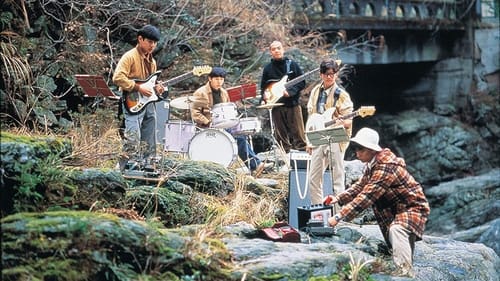
School Principal
1960年代中頃の四国の田舎町を舞台に、ベンチャーズに憧れ、ロックバンドに情熱を燃やす高校生たちの姿を軽妙でノスタルジックに描いた青春ドラマ。直木賞を受賞した芦原すなおの同名小説を、「転校生」「さびしんぼう」の大林宣彦監督が映画化。1965年の春休み。四国・香川県の観音寺市。高校入学を目前に控えた藤原竹良は、昼寝中にラジオから流れてきたベンチャーズの「パイプライン」に衝撃を受け、高校に入るや仲間を集めてロックバンドを結成する……。
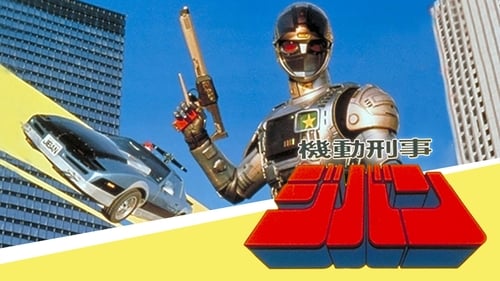
Doctor Kenzo Igarashi
このところ各地で、不審な事件が相次いで起こっていた。高いIQの少年・少女の誘拐事件や、ダービーの優勝馬など血統の良い動物、ダイヤなどの貴金属、危険な放射性物質の盗難事件。しかも事件現場には未知の何者かが動き回った形跡が残されていた。 実は、バイオロンの総統・ドクターギバが、日本の某所に秘密の怪物工場を作り、究極の怪物を創造しようとする、神をも恐れぬ計画を進行中であった。バイオロンに誘拐される少女達。それを助けようとした洋子刑事の敵に囚われてしまう。全員救出のため出動するジバン。しかし、敵は二重三重の罠を仕掛けて待ち構えていた・・・。

Fictionalized account of 20-year-old Noriko Tsuji, a real-life victim of a severe birth defect which afflicted 8,000 Japanese, children whose mothers took the sedative thalidomide during pregnancy. Tsuji has stunted flipper-like arms amputated at the behest of a father who deserted her soon after her birth. Nonetheless, the resourceful Noriko uses her feet to accomplish most of the tasks others would do with their hands.
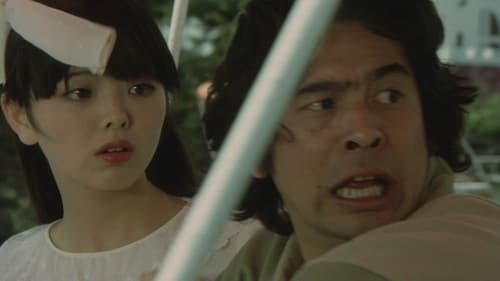
盗まれた石膏像の首をめぐって起こる連続殺人事件を解決する金田一耕助の活躍を描くミステリー・コメディ。横溝正史の原作『瞳の中の女』の映画化
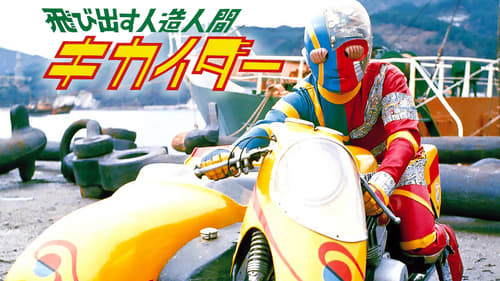
Dr. Komyoji
Professor Gill has created a machine that lets him restore destroyed robots. This machine is used to recreate all of the destructroids that had been destroyed by Kikaider. Kikaider is forced to destroy them all once again, and a new Destructoid Multi-Colored Sand Lizard.

Dr. Daidōji
ショッカーの死神博士は、大道寺博士が完成させた人工重力装置GXの設計図を手に入れるため、大道士博士の命を狙う。しかし、ショッカーの極秘暗号通信を解読した一文字隼人と滝和也は間一髪、博士を救う。だが、博士の娘、珠美はその時、誕生パーティーの席上で集まった子供達の目の前で襲われ、誘拐されてしまう・・・新怪人はザンジオー、つづくはなんと37怪人の大軍団。ゆけライダー1号、ジャンプだライダー2号。ショッカーどもに反撃だ!
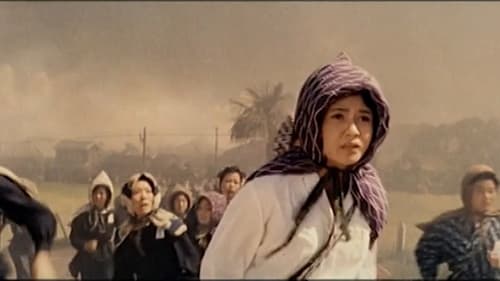
The last fight put up by remaining forces and a special volunteer nursing corps in 1944-5.
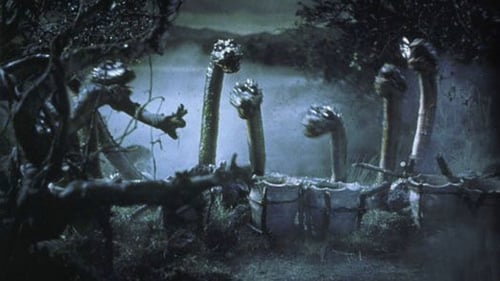
Prince Oousu
The legend of the birth of Shintoism. In Fourth Century Japan, the Emperor's son Ouso expects to succeed his father on the throne, but Otomo, the Emperor's vassal, prefers Ouso's stepbrother, and conspires to have Ouso die on a dangerous mission he has contrived. But Ouso prevails in the mission and returns to his father's castle under a new name, Prince Yamato Takeru. Otomo plots to have the Prince sent into even greater danger, but Otomo is unaware that the gods have favored the Prince and the outcome is far from what any of them expected.

Aiko, a bar hostess, falls for the son of a company president who also keeps a mistress, and whose family disapproves of his relationship with the bar hostess.

Historical drama about a sleepy-eyed ronin.
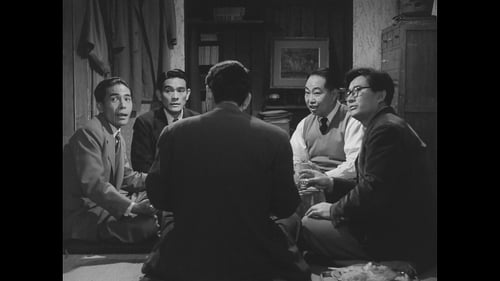
Miwa
A husband and wife's pet peeves and minor irritations escalate into major rifts and animosity.

Portmanteau film about young lovers.
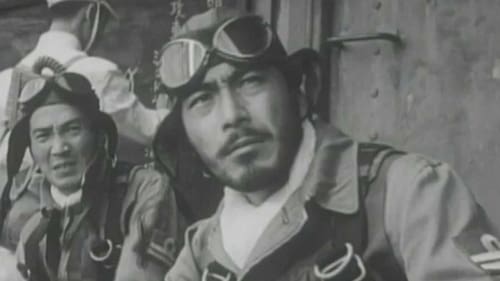
Staff Officer (uncredited)
Admiral Isoroku Yamamoto, a brilliant tactician, is a loyal subject of the emperor, despite his grave misgivings about leading Japan's navy into war with the United States. He opposes the attack on Pearl Harbor, but, overruled, he leads his forces to the best of his ability.

Shinsaburo
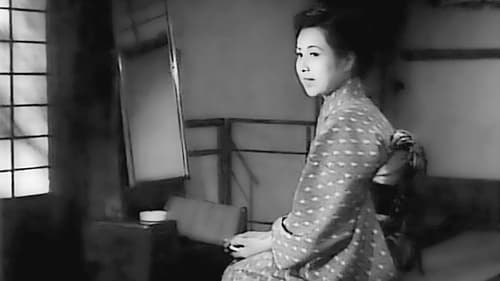
Hirohisa Matsuyama
Ten years into a marriage, the wife is disappointed by the husband's lack of financial success, meaning she has to work and can't treat herself and the husband finds the wife slovenly and mean-spirited: she neither cooks not cleans particularly well and is generally disagreeable. In turn, he alternately ignores her and treats her as a servant. Neither is particularly happy, not helped by their unsatisfactory lodgers. The husband is easily seduced by an ex-colleague, a widow with a small child who needs some security, and considers leaving his wife.

Ryosuke Tanabe
Young Setsuko Fujino begins a new job at Tokyo Chemical Company. She likes her boss, Ippei Hitachi, and enjoys serving him tea, despite the fact that her fellow workers think the women employees should not have to act in such a servile manner. When the women go on strike over the issue, Setsuko finds herself caught in the middle. When the heir to the company, Ryosuke Tanabe, proposes marriage to Setsuko, she is honored, but realizes that her real affection is for Hitachi.

Kazuo Machida
Office worker comedy by Nobuo Nakagawa

Gon
Directorial debut by Umetsugu Inoue, the famous director of Musicals

Once an average and seemingly ordinary Tokyo girl, she suddenly finds herself as a TV star owing to her discovery by a casting company, which noticed photographs that her cousin had sent. When another actress falls ill she is given the role instead. Her first film is a success propelling the young actress to popularity, her own fans, money and a house. While everything looks dandy from the outside not all is well within the family however.

Kakuzo Ono
When a group of young geologists declares a mountainside marked for residential development unstable, they are met with scorn on two fronts. On one end, they must contend with the local villagers who balk at the prospect of relocation; on the other, they face the ambitions of the headstrong lumber baron, whose actions will only further destabilize the land. Their pleas for reason ignored, the scientists can do little but observe as nature runs its inevitable course.

Mr. Inu
Melodrama by Kon Ichikawa

Ito

A young lord joins gang of Robin-esque robbers.

Directed by Senkichi Taniguchi

A romantic melodrama about the shifting relationship between Ryosuke and Miki as their precarious employment and social circumstances shift around them.

Ryosuke
A romantic melodrama about the shifting relationship between Ryosuke and Miki as their precarious employment and social circumstances shift around them.

This film is strongly anti-war film. The film is based on the collection of writings by Japanese student soldiers who died during World War II. The film is located to Burma. It shows the everyday problems of soldiers in contrast of their ideas and the cynicism of their commanders. Soldiers are also victims of military bullying by their commanders.
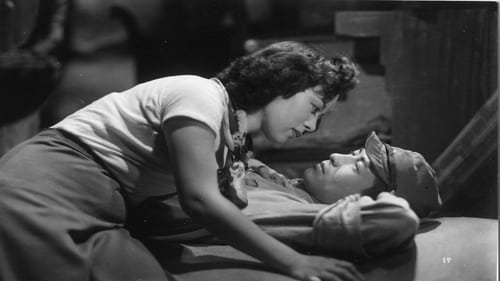
Oda
Mikami, a Japanese soldier, is captured by Chinese forces. Although able to escape, he is treated with contempt by his peers. After falling in love with a prostitute named Harumi, she convinces him to desert the army and live with her. Directed by Senkichi Taniguchi with a screenplay by Taniguchi and Akira Kurosawa and assistant direction by Ishiro Honda. Kurosawa's final credit as a screenwriter was removed from initial release due to various rewrites.
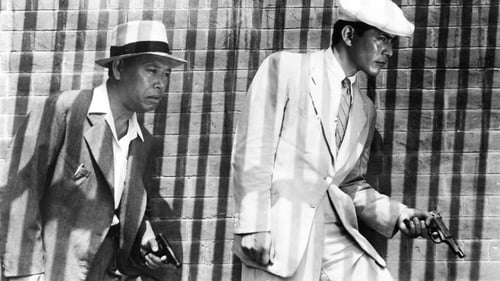
Criminal Identification Officer
A bad day gets worse for young detective Murakami when a pickpocket steals his gun on a hot, crowded bus. Desperate to right the wrong, he goes undercover, scavenging Tokyo’s sweltering streets for the stray dog whose desperation has led him to a life of crime. With each step, cop and criminal’s lives become more intertwined and the investigation becomes an examination of Murakami’s own dark side.

Gen-Chan
Continuation of The Blue Mountains: Part I. Released a week later.

Gen-Chan
Teacher Yukiko finds herself in opposition to conservative faculty and villagers after defending a student for being in a relationship with a young man from Tokyo.
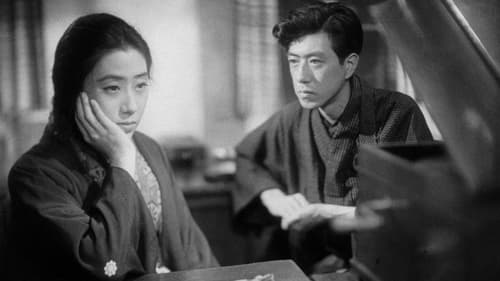
Tetsuo Mizushima
Sumako, a country girl, becomes a great actress with the help of Hogetsu,a scholar who brought some of European realism to the Japan's stage. The relationship leads to the end of his marriage and the breakup of his Arts Society. This is another version of Kenji Mizoguchi's film "The Love of Sumako the Actress" ("Joyû Sumako no koi"), from the same year. Both tells the story of the famous actress Sumako Mitsui (1886-1919), considered the first great modern theater actress in Japan. Mizoguchi himself is said to have preferred Kinugasa's version.




















